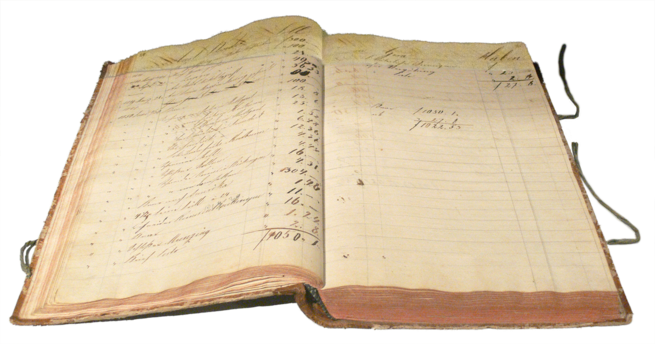
Main Difference
The main difference between Property and Asset is that the Property is a physical or intangible entity owned by a person or a group of people and Asset is a economic resource, from which future economic benefits are expected.
-
Property
Property, in the abstract, is what belongs to or with something, whether as an attribute or as a component of said thing. In the context of this article, it is one or more components (rather than attributes), whether physical or incorporeal, of a person’s estate; or so belonging to, as in being owned by, a person or jointly a group of people or a legal entity like a corporation or even a society. Depending on the nature of the property, an owner of property has the right to consume, alter, share, redefine, rent, mortgage, pawn, sell, exchange, transfer, give away or destroy it, or to exclude others from doing these things, as well as to perhaps abandon it; whereas regardless of the nature of the property, the owner thereof has the right to properly use it (as a durable, mean or factor, or whatever), or at the very least exclusively keep it.
In economics and political economy, there are three broad forms of property: private property, public property, and collective property (also called cooperative property).
Property that jointly belongs to more than one party may be possessed or controlled thereby in very similar or very distinct ways, whether simply or complexly, whether equally or unequally. However, there is an expectation that each party’s will (rather discretion) with regard to the property be clearly defined and unconditional, so as to distinguish ownership and easement from rent. The parties might expect their wills to be unanimous, or alternately every given one of them, when no opportunity for or possibility of dispute with any other of them exists, may expect his, her, its or their own will to be sufficient and absolute.
The Restatement (First) of Property defines property as anything, tangible or intangible whereby a legal relationship between persons and the state enforces a possessory interest or legal title in that thing. This mediating relationship between individual, property and state is called a property regime.
In sociology and anthropology, property is often defined as a relationship between two or more individuals and an object, in which at least one of these individuals holds a bundle of rights over the object. The distinction between “collective property” and “private property” is regarded as a confusion since different individuals often hold differing rights over a single object.
Important widely recognized types of property include real property (the combination of land and any improvements to or on the land), personal property (physical possessions belonging to a person), private property (property owned by legal persons, business entities or individual natural persons), public property (state owned or publicly owned and available possessions) and intellectual property (exclusive rights over artistic creations, inventions, etc.), although the last is not always as widely recognized or enforced. An article of property may have physical and incorporeal parts. A title, or a right of ownership, establishes the relation between the property and other persons, assuring the owner the right to dispose of the property as the owner sees fit.
-
Asset
In financial accounting, an asset is an economic resource. Anything tangible or intangible that can be owned or controlled to produce value and that is held by a company to produce positive economic value is an asset. Simply stated, assets represent value of ownership that can be converted into cash (although cash itself is also considered an asset).
The balance sheet of a firm records the monetary value of the assets owned by that firm. It covers money and other valuables belonging to an individual or to a business. One can classify assets into two major asset classes: tangible assets and intangible assets. Tangible assets contain various subclasses, including current assets and fixed assets. Current assets include inventory, while fixed assets include such items as buildings and equipment.
Intangible assets are nonphysical resources and rights that have a value to the firm because they give the firm some kind of advantage in the marketplace. Examples of intangible assets include goodwill, copyrights, trademarks, patents and computer programs, and financial assets, including such items as accounts receivable, bonds and stocks.
-
Property (noun)
Something that is owned.
“Leave those books alone! They are my property.”
“Important types of property include real property (land), personal property (other physical possessions), and intellectual property (rights over artistic creations, inventions, etc.).”
-
Property (noun)
A piece of real estate, such as a parcel of land.
“There is a large house on the property.”
-
Property (noun)
Real estate; the business of selling houses.
“He works in property as a housing consultant.”
-
Property (noun)
The exclusive right of possessing, enjoying and disposing of a thing.
-
Property (noun)
An attribute or abstract quality associated with an individual, object or concept.
“Charm is his most endearing property.”
-
Property (noun)
An attribute or abstract quality which is characteristic of a class of objects.
“Matter can have many properties, including color, mass and density.”
-
Property (noun)
An editable or read-only parameter associated with an application, component or class, or the value of such a parameter.
“You need to set the debugging property to “verbose”.”
-
Property (noun)
A prop, an object used in a dramatic production.
“Costumes and scenery are distinguished from property properly speaking.”
-
Property (noun)
Propriety; correctness.
-
Property (verb)
To invest with properties, or qualities.
-
Property (verb)
To make a property of; to appropriate.
“#* Shakespeare”
-
Asset (noun)
Something or someone of any value; any portion of one’s property or effects so considered.
“These shares are a valuable asset.”
-
Asset (noun)
Any component, model, process or framework of value that can be leveraged or reused.
-
Asset (noun)
intelligence asset
-
Asset (noun)
private parts; a woman’s breasts or buttocks, or a man’s genitalia.
